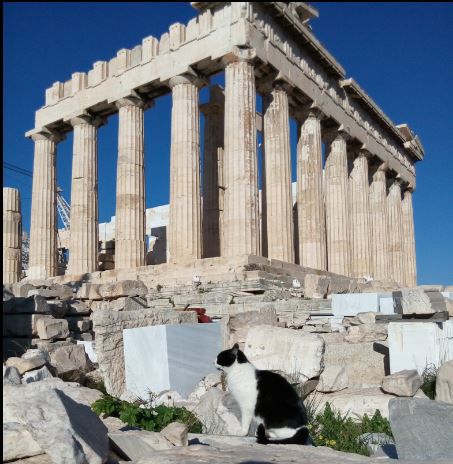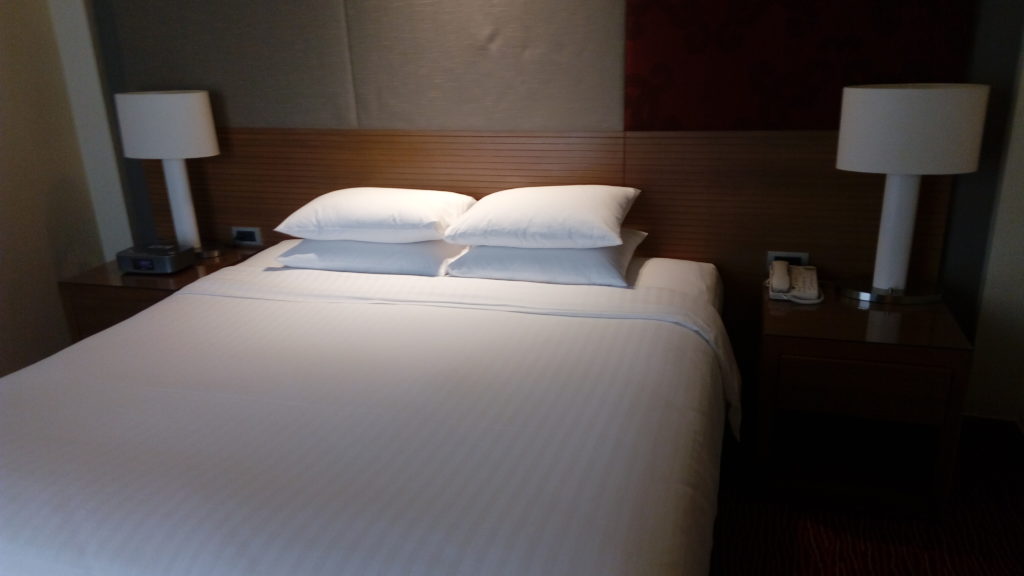I recently read an online guide to budget travel that really got my goat*, as my granny used to say.

It also got me thinking about all the bad travel advice I’ve read online, and how some of it ought to be challenged. Which is what I’m about to do.
Here are just a few things I’ve read recently, and my thoughts about them.
“Avoid the tourist hotspots.”
You may as well advise people not to travel at all. The tourist hotspots are the places everybody wants to see, for good reason. It’s fair enough to say, for example, don’t stay in the middle of London because it’s so expensive, or to go out of season when things are less busy and perhaps cheaper (although perhaps not open all the time). But to say not to go there — and thus miss everything one goes to London to see — is akin to saying: “just stay at home”.
At the same time, it is good advice to go off the beaten track, and discover things that may not be on the tourist trail — especially if you have a special interest.

“Don’t eat out.”
One online guide suggested that travellers avoid eating in restaurants altogether and learn to cook their own “authentic” local cuisine. Ridiculous. Even travelling on a budget travel should not mean missing out on a culinary adventure.
Here’s a better idea: do eat out, but don’t do it in the high street or a near a popular tourist attraction. Search online, and ask locally, for smaller, lesser-known restaurants that are out of the way. If they are paying less in rent, and if it’s a family-run enterprise, it’s likely to be more affordable.
You might even discover that the food is better (and more authentic) than that at the high-volume place next to the museum, and the welcome is much warmer. You are also more likely to meet “real” people who can tell you more about the place you’re visiting than the waiters at the posh place (who are quite probably not locals themselves) can or have the time to do.
You never know, you might even find yourself invited into somebody’s inner circle, or even their house, and have a unique experience. (If this does happen, of course you should exercise proper safety precautions — never go off alone with a stranger).
As for the blogger’s suggestion of doing it yourself … finding somewhere to cook, buying the implements and sourcing the ingredients and “authentic” recipes would be more expensive, and take up more of your limited travelling time, than going to a nice eatery.
If you just want to cook yourself a curry, there’s no reason to go to India to do it.
“Always choose the cheapest accommodation.”
No, no, no. Especially if you are on your own, choose the accommodation that makes you feel safe and, while not necessarily at the centre of the action, is close to where you want to be. Transport fees can easily chew up the saving you made on your digs, and they take up valuable time.

Also, choose accommodation that is appropriate for you and your situation. Don’t be the creepy old guy at the youth hostel — you may not think you’re creepy, but trust me, you are — or the bewildered and broke backpacker at the six-star hotel. Or the single at the family friendly resort.
Paying a little more to feel comfortable and secure makes sense because it reduces the stress that often accompanies travel, and allows you to concentrate on getting the most out of your time and money.
“Don’t travel until you can afford to pay for everything upfront.”
This is a tough one. I don’t like to carry credit-card debt these days, but I did when I was younger, and I understand the reasons why it’s sometimes a good idea to travel on borrowed money.
If you’ve got a steady job — although perhaps there is no such thing these days — there is no harm in splashing out on a holiday, as long as you are disciplined about paying it back.
There is a right time to do everything, and it would be a shame to miss it because you’re on a too-strict budget. Overextending yourself slightly to do something you really want to do when you are on the spot can save you a feeling of deep regret. It is also cheaper than having to return to do it another time (when it may not be the same).
Look at travel as an investment in enriching your life and understanding the world around you. Don’t go broke taking holidays, but don’t sit at home saving your pennies for a day that may never come.
*To “get someone’s goat”, according to dictionary.com is to anger or annoy them. It apparently originates from horse racing where it was common practice to leave a goat in the stall with a racehorse to calm it down. Removing the goat would upset the horse and cause it to lose the race.
What have I missed out of this post? Have you ever received any stupid advice you’re glad you ignored (or sorry you followed)?
